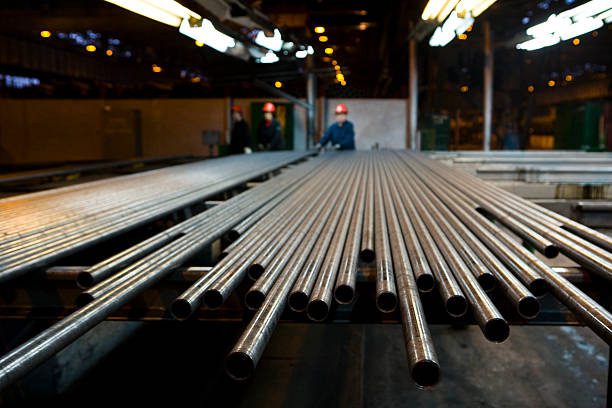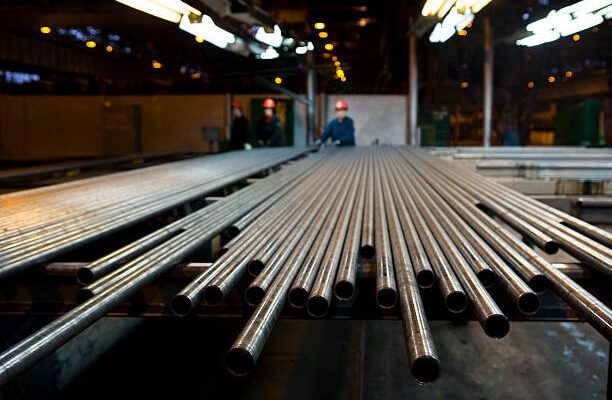
From Refineries to Power Plants: How Arch City Steel & Alloy Pipes Support Heavy Industry
- Heavy industry operations demand piping systems that can withstand extreme conditions without failure. Refineries and power plants operate under constant thermal stress, corrosive environments, and high-pressure scenarios that test material limits daily. Arch City Steel & Alloy understands that selecting the right pipe grade determines whether a facility runs smoothly or faces costly shutdowns and safety risks.
- Arch City Steel & Alloy provides industrial-grade piping solutions engineered for demanding applications across energy sectors. The company supplies specific alloy grades designed to handle temperature fluctuations, pressure variations, and chemical exposure common in refinery and power generation environments. Material selection directly impacts operational reliability and maintenance costs over a facility’s lifespan.
Material Requirements in Refinery Operations
- Processing Unit Challenges: Refineries expose piping to crude oil, sulfur compounds, and hydrocarbon derivatives at elevated temperatures. Carbon steel pipes often corrode quickly in these conditions, leading to leaks and unplanned maintenance. Stainless steel grades like 316L and duplex alloys resist sulfidic corrosion while maintaining structural integrity under thermal cycling. These materials reduce downtime and extend service life in fluid catalytic cracking units and distillation towers.
- Pressure System Specifications: High-pressure steam lines and process piping require thick-walled pipes with specific tensile strength ratings. ASTM A106 Grade B carbon steel pipes handle moderate pressure applications, but chromium-molybdenum alloys become necessary when temperatures exceed 800°F. The wrong material choice results in creep failure, where metal deforms gradually under sustained stress until catastrophic rupture occurs.
- Chemical Resistance Properties: Refinery environments contain hydrogen sulfide, which causes hydrogen embrittlement in standard carbon steels. Nickel alloys like Inconel 625 prevent this degradation in sour gas service. Plants that skimp on proper alloy selection face frequent pipe replacements and potential safety incidents that shut down entire processing units.
Power Plant Piping Demands
- Boiler Tube Applications: Power generation facilities circulate superheated steam through boiler tubes at pressures reaching 3,500 psi. ASME SA-213 T11 and T22 alloy steel tubes resist oxidation and maintain creep strength at temperatures up to 1,100°F. Standard carbon steel tubes scale internally and fail prematurely in these conditions, reducing boiler efficiency and increasing fuel consumption.
- Condenser System Needs: Cooling water systems in power plants require materials that resist pitting and crevice corrosion. Admiralty brass and 90/10 copper-nickel alloys perform well in seawater applications, but brackish water often demands titanium tubes despite higher initial costs. Copper-nickel prevents biofouling better than stainless steel in marine environments.
Critical Piping Specifications
Plants specify pipes based on several factors:
- Mechanical properties including yield strength, ultimate tensile strength, and elongation percentages that determine load capacity.
- Corrosion allowance calculations that account for expected metal loss over the design life of the system.
- Temperature derating factors that reduce allowable stress as operating temperatures increase beyond ambient conditions.
- Non-destructive testing requirements such as ultrasonic examination and radiographic inspection for critical service applications.
Thermal Expansion Considerations
Loop Design Requirements: Steam lines expand several inches over their length when heated from ambient to operating temperature. Fixed piping without expansion loops develops destructive stresses that crack welds and damage equipment connections. Designers calculate thermal growth using the coefficient of linear expansion for each pipe material.
Support System Integration: Pipe supports must allow controlled movement while preventing excessive vibration. Spring hangers maintain constant support force as pipes expand, but rigid supports cause binding that leads to stress concentration at anchor points. Poor support design causes premature fatigue failures at elbows and tees.
Conclusion
Industrial facilities depend on properly specified piping materials to maintain safe, efficient operations under demanding conditions. Material selection affects not just initial installation costs but long-term maintenance expenses and operational reliability. Engineers should evaluate thermal requirements, pressure ratings, and corrosive conditions carefully when specifying pipes for refinery and power plant applications. Consult with experienced metallurgists and suppliers to match material properties with your specific operating parameters and avoid costly failures.
Feature Image Source:https://media.gettyimages.com/id/80483561/photo/pipes-in-row-with-workers-in-steel-factory.jpg?s=612×612&w=0&k=20&c=awFcVu81dT23fIOGOkVs8O7Ge4e_kxCbC6Ubc7gl2q0=

